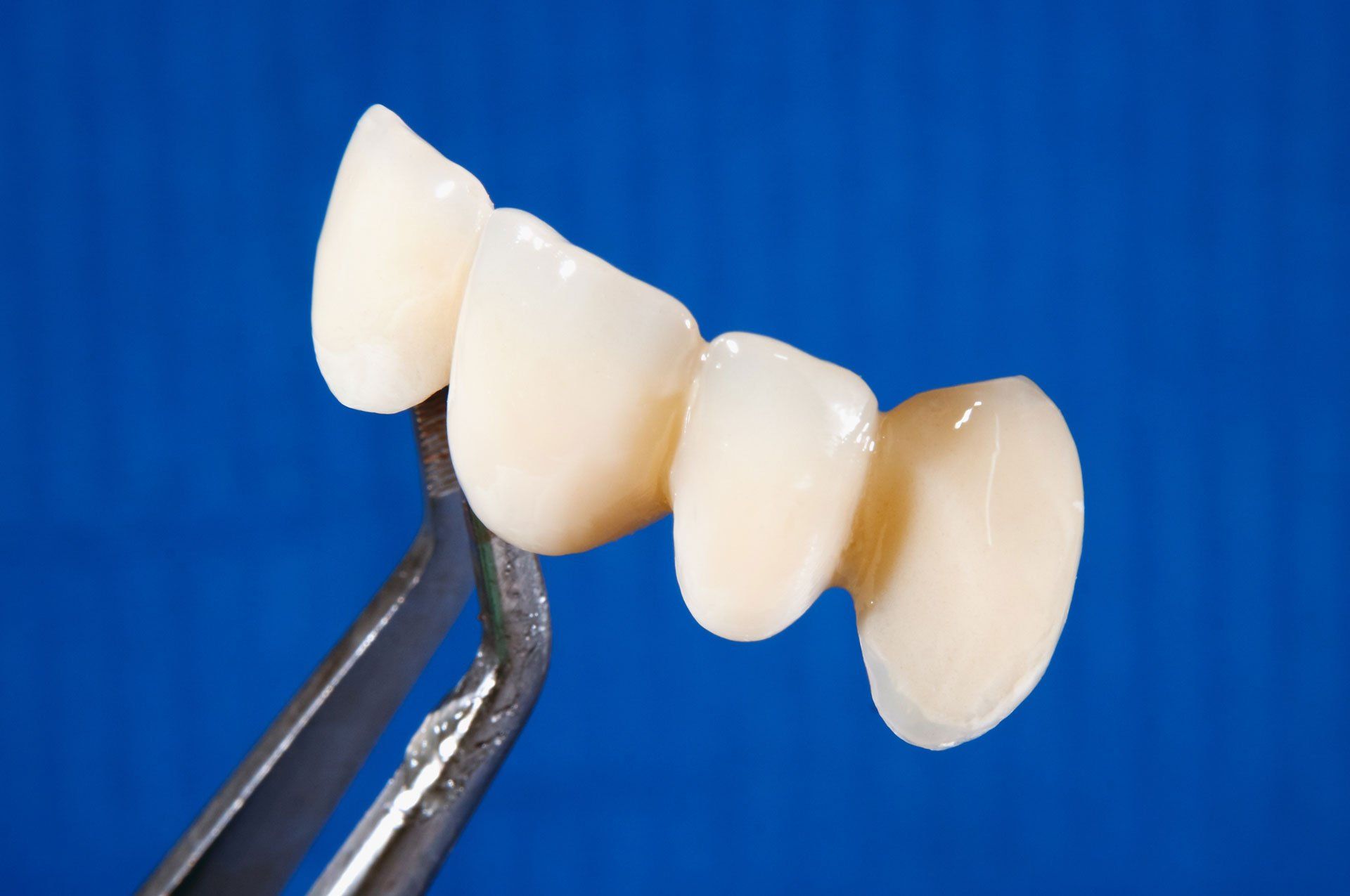A temporomandibular disorder (TMJD) is from dysfunction in the articulating disc of the jaw joint and the surrounding facial muscles. While you may not have had TMJD in the past, people who wear dentures are more prone to developing this issue for a number of reasons. Learn more about TMJD disorders so you can address the issue if you need dentures.
Why Are Denture Wearers Prone to TMJD?
Without the support of your natural teeth, your jaw muscles can strain to get into proper alignment. You do need to get used to new dentures, but some people have a hard time learning how to relax their jaw.
Furthermore, people who no longer have their teeth suffer from bone
resorption, or the loss of jaw bone density. Bone resorption causes your jaws to shrink, and it can cause a loss of vertical dimension, or height, in your face. Loss of vertical dimension not only affects your appearance, but it can lead to
TMJD.
How Can You Address TMJD If You Wear Dentures?
Severe cases of TMJD may require jaw joint surgery, but you also have many non-invasive conservative treatments that you can try first.
Choose Tougher Denture Materials
One
study
found that the stiffer the denture base material, the better the distribution of the chewing forces and stresses on the jaw's articular disc. While plastic can be more aesthetically pleasing, you may want to consider a metal denture base to better distribute chewing forces. If your jaw tends to get sore when eating, you may want to consider porcelain over acrylic teeth since porcelain is more durable.
Consider Implant-Supported Dentures
If you feel like your dentures are rocking or unstable, you may develop muscle tension in your face. Some people can get used to denture adhesive, but if you struggle, you may want to consider a more permanent solution: implants.
Dentures supported by implants can lock into place and can feel more stable and comfortable. If the appliance is comfortable, you will be less likely to tense facial muscles and stress your jaw joint.
Get Fitted for Neuromuscular Dentures
Your dentures may fit perfectly, but if your jaw muscles or joints do not work ideally, you can still develop TMJD. In this case, you might want to get fitted with neuromuscular dentures, or dentures manufactured with your comfort and ideal biomechanical functioning in mind.
Good candidates for neuromuscular dentures include:
- Those with weakened lower jaw muscles
- Those who've experienced facial trauma in the past
- Those who've worn the same appliance for many years without denture relines
To manufacture the neuromuscular denture, your dentist will first use a frequency transcutaneous electrical neural stimulation (ULF-TENS) device on tense facial muscles. The TENS units send electrical impulses that can help relax your muscles.
Once your muscles are relaxed and in the ideal position, your dentist can take an impression of your gum tissues in the mandible and maxilla. Your dentist can then send that impression to a denturist so that they can modify your dentures to ones that help you correct your bite.
Stay Up to Date on Your Denture Relines
You may think that you only need one denture appliance in your lifetime, but as you experience bone resorption, the shape of your mandible and maxilla will change and the denture will no longer fit properly. Poorly fitted dentures are unstable and can stress the TMJ. Your denturist does not need to make a completely new denture. He or she can reline an old one so that it is more stable.






